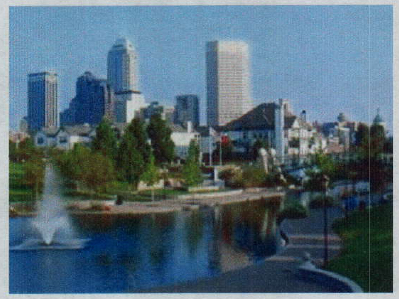South Bend, IN – Copyright lawyers for Susan Lynch, of Indiana, Math-U-See Indiana, Inc. of Indiana, and Lisa and Jim Angle, of Idaho, filed a breach of contract and copyright infringement suit alleging Math-U-See, Inc. of Lancaster, Pennsylvania, and Steve and Ethan Demme infringed the works CALCULUS WORKS, RECORDED CALCULUS LESSONS, HONORS BOOKS, PRE-CALCULUS WORKS, ALGEBRA 2 AND QUIZ WORKS, and TEST BOOKLETS.
The complaint alleges that Steve Demme owns Math-U-See, Inc. and invented the Math-U-See curriculum for home schooling parents in the early 1990s. Steve Demme used a business model of having individual representatives and distributors to sell the Math-U-See curriculum. The plaintiffs were “Reps,” and Plaintiff Lisa Angle also wrote additional material for Math-U-See, which are the copyrighted works that the copyright infringement claim is based upon. The complaint alleges that Sue Lynch was the Rep for Indiana and Illinois beginning in 1996 and built sales to hundreds of thousands of dollars by 2009. Lisa and Jim Angle were Reps for Montana, North Dakota, Alabama, and Tennessee. The complaint alleges that in 2010 Steve Demme, with help of Ethan Demme, ended the representative business model and cut the plaintiffs out of selling the Math-U-See curriculum. Ms. Angle claims that the Defendants continued to use the copyrighted materials she created after the agreement was terminated and without Ms. Angle’s permission. The complaint makes claims of breach of contract, breach of good faith, breach of fiduciary duty, violation of Indiana Franchise Act, violation of Illinois Franchise Act, violation of the Idaho Unfair Trade Practices Act, violation of Illinois Unfair Trade Practices Act, violation of Tennessee Unfair Trade Practices Act, Violation of Law 75 of Puerto Rico, tortuous interference with contract, tortuous interference with prospective business relations, wrongful conversion of customer list, promissory estoppel, unjust enrichment/quantum meruit, accounting and six counts of copyright infringement. The plaintiffs seek actual and punitive damages, an injunction prohibiting further distribution of the copyrighted works, costs and attorney fees.
Practice Tip: In this case, Ms. Angle claims she is the author and rightful owner of the copyrights to the works described in the complaint. She claims the defendants violated 17 U.S.C. 106 of the Copyright Act. Ms. Angle has not formally registered her copyrights with the US Copyright Office, however, this is not a necessity for her infringement claims to succeed. Rather, the Copyright Act provides that “Copyright in a work protected under this title vests initially in the author or authors of the work.”
Continue reading
![]() roduced and/or distributed the copyrighted video using the BitTorrent “distribution protocol”. The complaint states that the plaintiff has the Internet Protocol address (“IP address”) of these 18 individuals and will learn their identities during discovery. First Time Videos has made claims of copyright infringement and civil conspiracy. The complaint seeks an order impounding all copies of the video, damages, and litigation expenses.
roduced and/or distributed the copyrighted video using the BitTorrent “distribution protocol”. The complaint states that the plaintiff has the Internet Protocol address (“IP address”) of these 18 individuals and will learn their identities during discovery. First Time Videos has made claims of copyright infringement and civil conspiracy. The complaint seeks an order impounding all copies of the video, damages, and litigation expenses. Indiana Intellectual Property Law News
Indiana Intellectual Property Law News



